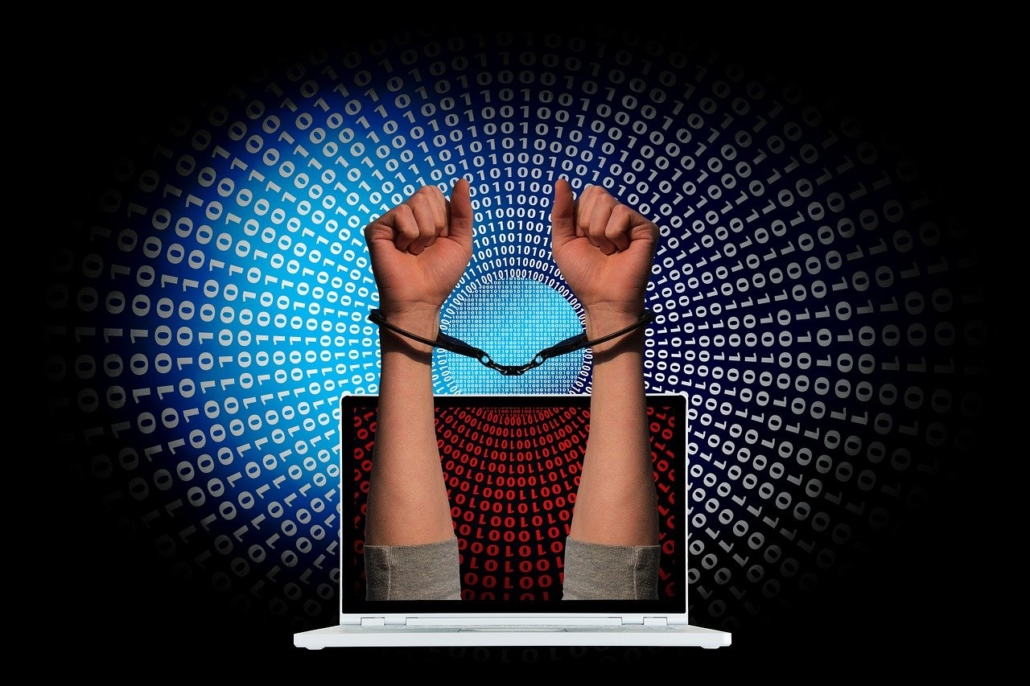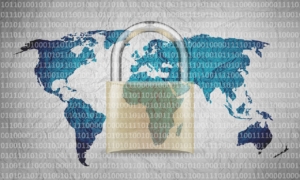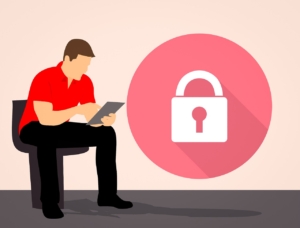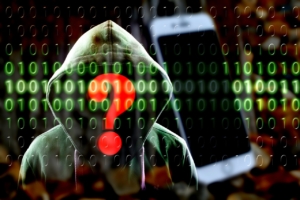Cybercriminals are Targeting US Businesses with Malicious USB Drives
The FBI released a warning for US businesses – about a cybercriminal group from Eastern Europe trying to hack into the networks of US companies by mailing these businesses USB drives with malicious code on them.

This cybercriminal group, known as FIN7, is based in Eastern Europe, and US officials believe that they are responsible for billions of dollars in both business and consumer losses in both the US and abroad. The Justice Department has blamed FIN7 for stealing millions of credit card numbers in 47 states, and the FBI has been on the group’s tail for years.
This highly organized and sophisticated group attempts to infiltrate corporate networks by employing a seemingly old-fashioned, yet remarkably effective, tactic: mailing physical USB drives containing malicious code directly to businesses.
One of the most dangerous threats is a “BadUSB” attack. Plugging in a random USB drive, whether found on the ground or received as a freebie at a conference, poses significant cybersecurity risks. This seemingly innocuous act can lead to severe consequences for your computer and personal or corporate data.
These aren’t just regular storage devices; their firmware has been reprogrammed to act as other devices, most commonly a keyboard. When plugged in, the BadUSB instantly mimics typing commands, often at superhuman speed, which can then download malware, install ransomware, steal data, or even grant remote control to attackers. It bypasses typical antivirus scans because it’s not a “file” being scanned; it’s a device behaving maliciously.
These attacks have been going on for decades, primarily targeting companies in the defense, transportation, finance and insurance sectors. The mailed USB drives are often disguised as legitimate deliveries, arriving via services like the U.S. Postal Service and UPS. Some packages pretend to be from the Department of Health and Human Services (HHS), while others mimic Amazon deliveries, complete with fake “thank you” letters and counterfeit gift cards.
When an unsuspecting employee plugs one of these malicious USB drives into a computer, the device immediately registers itself as a Human Interface Device (HID) keyboard, rather than a storage device. This clever trick allows it to bypass many traditional security measures that block removable storage. Once recognized as a keyboard, the USB drive automatically injects a series of preconfigured keystrokes. These commands then download and install additional malware onto the compromised system, granting the cybercriminals remote access.
FIN7’s ultimate goal is to gain a foothold within the victim’s network, escalate privileges, and then deploy ransomware by gaining back door access to achieve their objectives. The success of this method hinges on human curiosity and the deceptive nature of the packages, making it particularly dangerous in environments where employees might not be rigorously trained on physical media security.
The FBI emphasizes that even a non-administrative account compromise can lead to significant breaches, as the attackers can then conduct reconnaissance and move laterally within the network to gain access to more critical systems. This resurgence of physical media attacks highlights the evolving tactics of cybercriminals and the need for businesses to educate their employees on the dangers of plugging in any unsolicited external devices.
Steps To Protect Your Self and Your Company Data
Thankfully, there are a number of steps that you can take in order to protect yourself and company data. Here are some tips:
- Don’t put any “free” or unknown USB drive into your computer, no matter what. If you find a USB drive, or you are given one from a stranger, you should give it to your IT department or other security personnel. Don’t even put it near your computer – even if you think you can see the owner of the drive.
- You also want to take full advantage of any security features you have access to including strong passwords and encryption on your own USB drives. You also want to make sure that you are backing up any data on those drives in case they are lost.
- Keep your business and personal USB drives in separate places. You shouldn’t use your personal USB drive in your work computer, and vice versa.
- Don’t use Autorun on your computer. This feature causes some types of media, such as DVDs, CDs, and USB drive to automatically open when they are put into a drive. When you disable this feature, if you insert a USB drive that is infected into your PC, it won’t open, and you can prevent the code from being put on your device.
- Use security software and make sure it Is updated. Use antivirus software, a firewall, and anti-spyware programs to make your computer as safe as possible. Also, make sure you update your computer with any updates or patches that come through automatically.
Robert Siciliano CSP, CSI, CITRMS is a security expert and private investigator with 30+ years experience, #1 Best Selling Amazon author of 5 books, and the architect of the CSI Protection certification; a Cyber Social Identity and Personal Protection security awareness training program. He is a frequent speaker and media commentator, and CEO of Safr.Me and Head Trainer at ProtectNowLLC.com.


 Put yourself in a criminal’s shoes: Which home would you attempt to rob: the one with the back door open or the one with the spotlights and a burglar alarm? Those home security deterrents may not stop a determined criminal, but they send a clear message: This home takes security seriously, and you put yourself at risk if you try to break in.
Put yourself in a criminal’s shoes: Which home would you attempt to rob: the one with the back door open or the one with the spotlights and a burglar alarm? Those home security deterrents may not stop a determined criminal, but they send a clear message: This home takes security seriously, and you put yourself at risk if you try to break in. There are two reasons to report a cyber attack. The first is to show cyber criminals that you take security seriously. The second is to gain safety in numbers. The more people who are aware of current attacks and techniques, the harder it is for criminals to operate. Remember that hackers and fraudsters depend on their victims knowing little no nothing about their scams. Spread the word, and you help others defend themselves. When enough people fight back or ignore scam and hacking attempts, criminals move on to easier targets.
There are two reasons to report a cyber attack. The first is to show cyber criminals that you take security seriously. The second is to gain safety in numbers. The more people who are aware of current attacks and techniques, the harder it is for criminals to operate. Remember that hackers and fraudsters depend on their victims knowing little no nothing about their scams. Spread the word, and you help others defend themselves. When enough people fight back or ignore scam and hacking attempts, criminals move on to easier targets. With regard to national standards, the new cybersecurity policy is a long-overdue step in the right direction. One of the greatest challenges in convincing organizations to adopt stronger cyber security has been a lack of regulations. In cases where Federal or state governments have mandated security rules, adoption has been swift. Both the
With regard to national standards, the new cybersecurity policy is a long-overdue step in the right direction. One of the greatest challenges in convincing organizations to adopt stronger cyber security has been a lack of regulations. In cases where Federal or state governments have mandated security rules, adoption has been swift. Both the  This is in spite of ongoing efforts by businesses to provide employee training on cyber security. What stands out is the reason why that training fails.
This is in spite of ongoing efforts by businesses to provide employee training on cyber security. What stands out is the reason why that training fails. Insurers claim that the attack is not covered because it was an act of war committed by a foreign adversary. U.S. government officials attributed NotPetya, a Windows ransomware attack that encrypts operating systems and data, on the Russian government. Insurance companies believe this triggers the “war exclusion” common to many types of insurance policies that blocks claims resulting from military action. Though written to cover damage from bullets and bombs, cyber insurance underwriters now seek to apply that exclusion to damage from state-sponsored cyber attacks.
Insurers claim that the attack is not covered because it was an act of war committed by a foreign adversary. U.S. government officials attributed NotPetya, a Windows ransomware attack that encrypts operating systems and data, on the Russian government. Insurance companies believe this triggers the “war exclusion” common to many types of insurance policies that blocks claims resulting from military action. Though written to cover damage from bullets and bombs, cyber insurance underwriters now seek to apply that exclusion to damage from state-sponsored cyber attacks. These cyber security New Year’s resolutions vary from simple things you can do in a few seconds to things that might require some outside help. They all have one thing in common: Individually, they will make you safer in 2023, so following just one will give you greater protection against cyber criminals. Each resolution that you add will boost security for you and your business.
These cyber security New Year’s resolutions vary from simple things you can do in a few seconds to things that might require some outside help. They all have one thing in common: Individually, they will make you safer in 2023, so following just one will give you greater protection against cyber criminals. Each resolution that you add will boost security for you and your business. Celebrate and savor the season, but keep these tips for cyber security in mind while you do.
Celebrate and savor the season, but keep these tips for cyber security in mind while you do. It’s time for that thinking to change. In its
It’s time for that thinking to change. In its 























